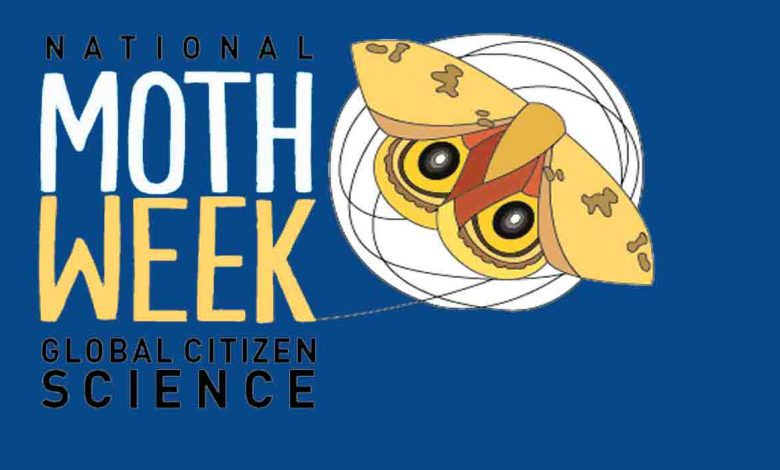72 moth species spotted in Dehradun during NMW this year

Friday, 06 August 2021 | PNS | Dehradun
A total of 72 moth species were identified in Dehradun during the National Moth Week observed from July 19 to 22 in coordination with the Forest Department and Biodiversity Board. The report of the moth diversity assessed during the said period in Dehradun prepared by Sanjay Sondhi, Titli Trust/Doon Nature Walks states that the 72 moth species identified during the assessment last month was lower than 116 species identified in the previous assessment.
The report states that one of the possible reasons for the lower count than earlier could be the full moon and local weather, considering which a recommendation has been made to the global organisers of National Moth Week that the event be held around new moon in the future. In addition, adverse weather conditions in 2021, in the form of persistent rain, possibly reduced the number of moths coming to the moth screen. Sondhi said, “At Lacchiwala and Kaduapani in 2020, we kept the screens on longer, on account of Covid travel restrictions as we spent the night at the forest rest house. In 2021, we observed moths till 1030 pm, consistent with the past years.”
The National Moth Week is a global citizen science event organised in the last week of July throughout the world. National Moth Week partners with organizations around the world that focus on moth ecology, distribution and biodiversity. Moths are among the most diverse and successful organisms on earth. Scientists estimate there are 1,50,000 to more than 5,00,000 moth species. Their colors and patterns are either dazzling or so cryptic that they define camouflage. Shapes and sizes span the gamut from as small as a pinhead to as large as an adult’s hand. Moths can be important bioindicators- a species or taxon that tells us about the health of an ecosystem. A greater diversity of moths typically means there is a greater diversity of plant species, which leads to a greater diversity of other species as well. They play a crucial role in pollination and are food for many creatures such as bats. The Uttarakhand Forest department used National Moth Week in 2017 to launch a mechanism to monitor moth diversity annually in different landscapes in and around Dehradun. In 2021, with the restrictions of Covid-19 in place, awareness activities were not conducted, but monitoring activities continued at Lacchiwala reserved forest, Malsi reserved forest and Kaduapani reserved forest. Malsi displayed the maximum diversity with 53 species being identified, with 36 and 26 species being identified at Lacchiwala and Kaduapani respectively.






